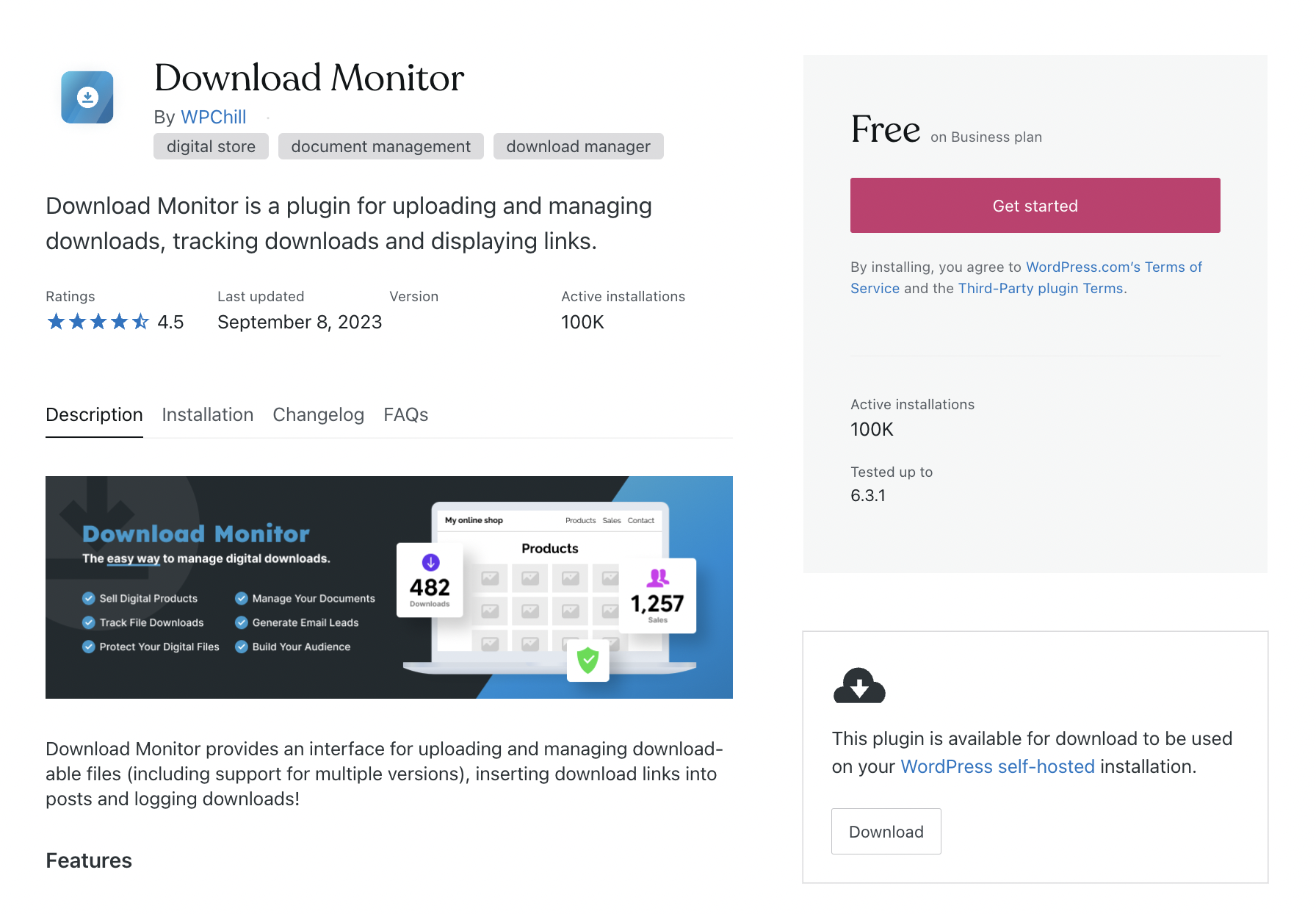WordPress.com plugin pages have been updated to include a download link for WordPress.org plugins listed in the .com directory. These are the listings that are scraped from WordPress.org. The plugins are available for free on WordPress.org for self-hosted sites but can only be used on WordPress.com with a paid subscription.

The text in the sidebar includes a link to an article explaining the difference between WordPress.org and WordPress.com. It appears on both the logged-out and logged-in views:
This plugin is available for download to be used on your WordPress self-hosted installation.
Themes hosted on WordPress.com have a similar notice with a link to download the theme and use it on a self-hosted site.
This change comes as the result of developers raising concerns about WordPress.com plugin listings outranking WordPress.org on Google Search in some instances. During that discussion, many developers were surprised to learn that their plugins created for WordPress.org were also listed on WordPress.com as only available with a paid subscription. Patchstack responded by updating its readme file to ensure that WordPress.com users and visitors are made aware that the plugin is available for free in the official WordPress plugin repository. This response may not be necessary now, unless developers want to include a direct link to their plugins.
In a discussion on Post Status Slack, some plugin developers said they would prefer a link to the actual plugin page where they can see and participate in reviews. The omission of a link back to WordPress.org may be intentional, as it would take users off of the .com site, which does not facilitate customers upgrading to paid plans in order to use plugins.
Some developers had also asked Automattic CEO Matt Mullenweg to noindex those pages, but he said that WordPress.com users should also be able to search Google for the listings.
Some developers have asked to know what percentage of their active installs come from WordPress.com vs. WordPress.org, or other hosting platforms. Mullenweg said there are currently no reports for this but that the data could be interesting.
“If people are providing more distribution to unaltered plugins, I think that’s great,” Mullenweg said during the discussion last week. “Happy for all our plugins to be duplicated and distributed by every host and site on the planet.”
When asked if WordPress.org could extract the data for known plugin distributors, like WordPress.com, Mullenweg said, “.com or any other host could share plugin info if it’s allowed by their privacy policy. Also it’s fairly trivial to get plugin info from crawling sites.”

